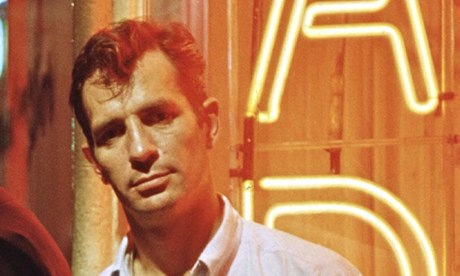
These days, every writer gets tagged. Their agonistically incubated works are synopsised, shrivelled. Reduced to keywords, indexical units, journalistic shorthand. Ever since the success of his essay collection Lights Out for the Territory (1997), that's what's been happening to Iain Sinclair. Walking, psychogeography, east London: it's easy enough to short-change the voluminous output of this ex-labourer, park gardener and publisher of unhinged experimental poetry by invoking these handles.
It's easy, too, to peg him as a postcode miniaturist, an obsessive localist deep-diving into the remotest substrata of Hackney history, the raving naysayer – one step removed from a Speakers' Corner demagogue or a sandwich-board-sporting apocalypse monger – forever raining down curses on those responsible for the Dome, the Olympics, all modern London's grandiose projects.
Such characterisations, even when they're meant as praise– for many readers, Sinclair is the key of England's hidden reverse, King of the Gypsies, pathfinder to all the heretics, outsiders and fringe-dwellers locked out of Albion's literary establishment – mask as much as they reveal. Just like that of Derek Jarman, another writer/film-maker/landscape artist latterly celebrated as a grand old Anglo dissenter but who as a young man had been transformed by his encounters with the work of American avant-gardists such as Stan Brakhage and Kenneth Anger, Sinclair's imaginative pantheon has always been mostly transatlantic: the mythographers and megalith poets of Black Mountain College; the speed merchants of the Beat movement.
American Smoke documents his temporary exile from the English capital. Early on he announces: "I needed a new mythology to shield against the sense of loss and hanging dread inherent in the invasion and dissolution of my familiar London ground." But where his previous mad travellings were symbolic exorcisms of creeping urban homogenisation – walking anticlockwise around the M25, pedalling a plastic swan from Hastings to the Lower Lea Valley in the company of film-maker Andrew Kötting – this time round he's created a collage journey to and through the sources of his sorcery. It's an odyssey, he claims, "to places where I would be a stranger, without language or back story". That's not entirely true: these are the landscapes of his imagination; opportunities to reacquaint himself with old times, the bookish passions he developed as a 20-year-old student in Dublin.
Here he is in Gloucester, Massachusetts, marinating in the topographies and residual echoes of Charles Olson (1910-70), the poet who treated modernism as a state of being rather than an academic subject; who declared: "I take SPACE to be the central fact to man born in America"; who showed Sinclair that writing with and out of passion needn't involve aligning himself with the Angry Young Men, a literary identity that, he believes, was "nothing more than a media-friendly staging post on the way to peevish rural retirement, bottles on the porch, second wives in red fur nursing black eyes".
Here he is in recalling a meeting in New York with Gregory Corso, imprisoned and sent to a mental hospital while still a teenager, on-off heroin addict, "the Joe Pesci of the Beat generation". Corso first saw his friend Allen Ginsberg in a room across a West Village street – having sex with the woman over whose memory he masturbated when he was behind bars. Years later, Corso would throw writer Kathy Acker out of a car and into a Black Panther-controlled part of working-class Oakland when she refused to take part in a threesome.
Other figures recalled or reckoned with: Malcolm Lowry, Jack Kerouac, William Burroughs, Gary Snyder, Roberto Bolaño. And Pavel Coen, a BBC radio producer maniacal about American refuseniks, who mysteriously disappears only to resurface (possibly) much later in a department store in Croydon. These characters, and the amanuenses, editors and book dealers around them, are evoked in the language of volcanology, seismology, geothermal science. Sinclair's is a prolix poetics, an amassing of noun-hives whose compacted wit would make the most lexically dexterous rapper envious: he describes a gathering of renowned poets performing together at Queen Elizabeth Hall as "world-class bedwetters, private patients in sabbatical asylums, tolerated gropers from midwestern campuses, debonair dudes from Mexican embassies".
Olson's poetry, according to Jeremy Prynne, was "immeasurably dense and confused and packed with a kind of fertile obscurity". That's also true of Sinclair: his writing can be an imagistic seance-stream full of startling riffs, memory sifts, domino-effect associationism. This can be mystifying, but it's important to ride the rapids and to go with the torrential flow; it's precisely his excesses and his refusal to prostrate himself before "the average reader" that prevent his books from being assimilated into the gated and unlovable compound of "literary fiction". By the end of American Smoke, cartography has become clouded. Disparate locations (from Hastings in England to Seattle) meld. The bibliographic and the geological conjoin. Rabbit hole, ghost continent, lucid delirium: the US wafts away, as grippingly haunted as Sinclair's prose.
To buy American Smoke for £14.99 with free UK p&p call 0330 333 6847 or go to guardianbookshop.co.uk

